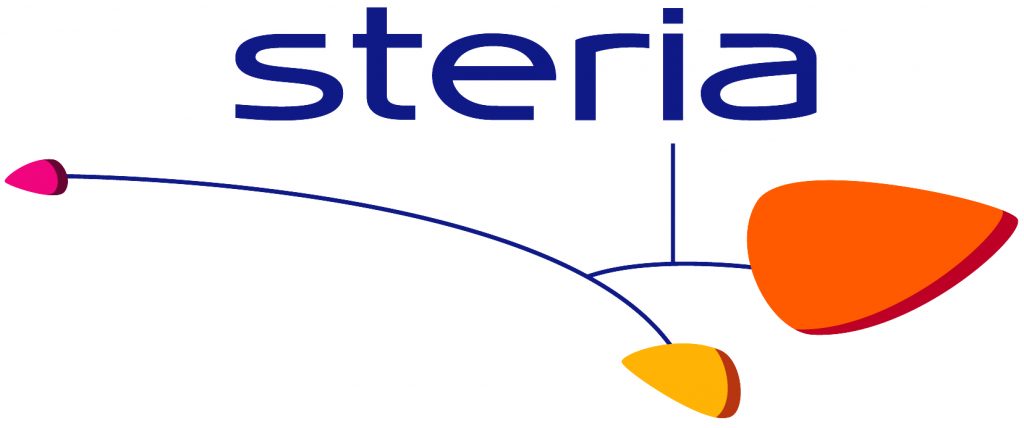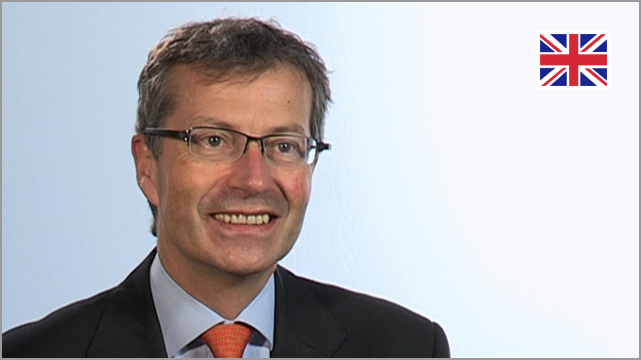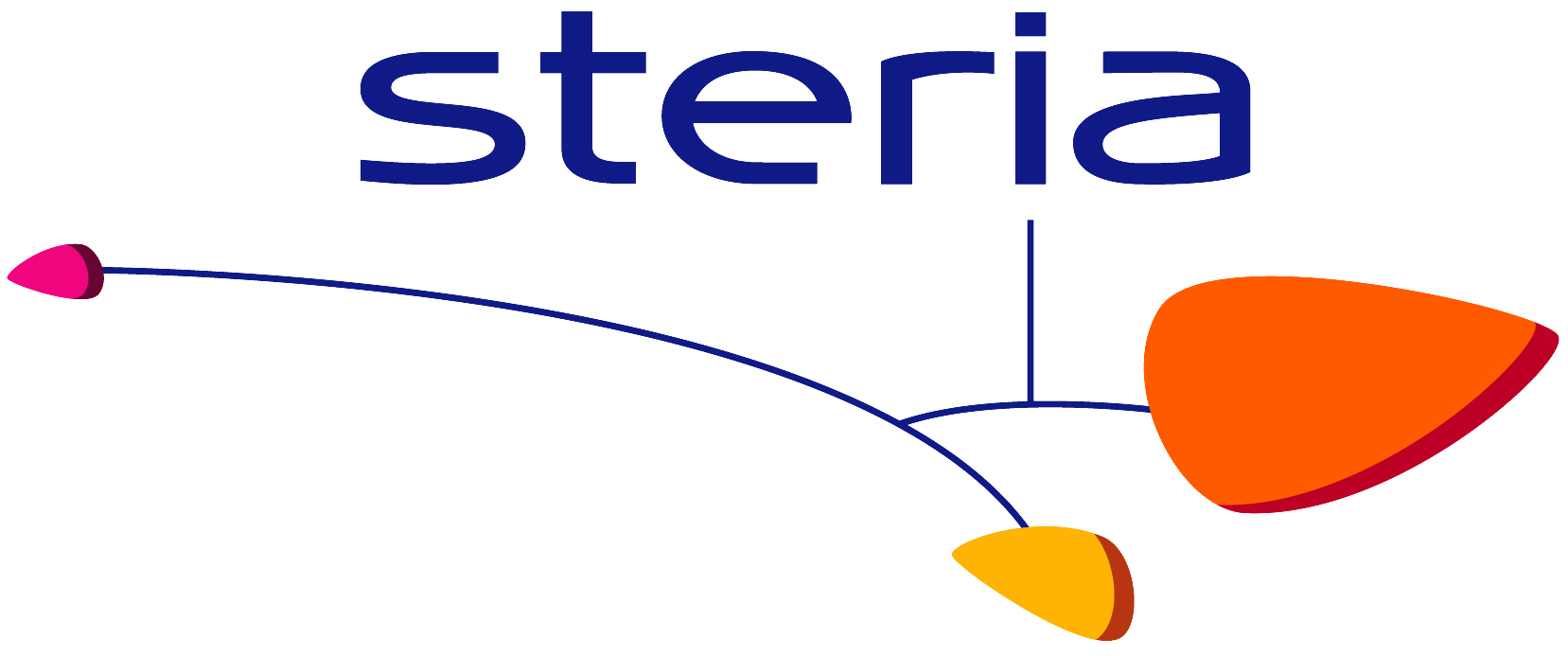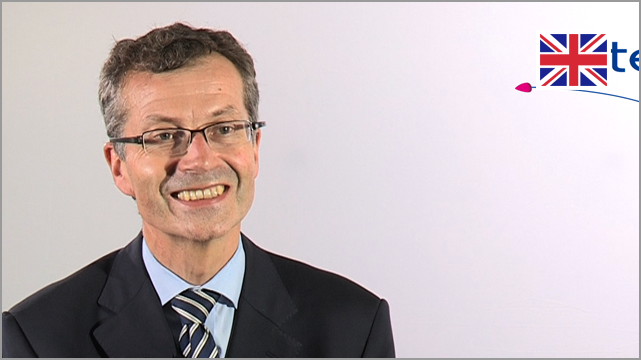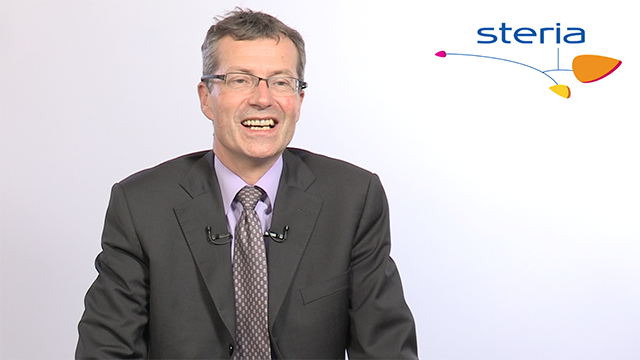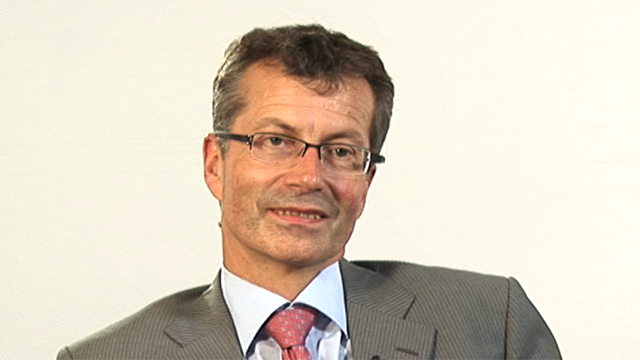EuroBusinessMedia (EBM): Steria, a leading IT services company in Europe, has just reported profit for the first half of the year. François Enaud welcome. You are the CEO of Steria, what are your comments on the group’s performance in the first half?
François Enaud (FE): Very simply: solid, in line and promising. Solid, with a very significant improvement profitability by 80 basis points at 7.1%. Solid, with a very good financial situation and a sound balance sheet, particularly with a large respect of our bank covenant. In line, because we are very, very close to the expectation regarding revenue - we announced a flat revenue for H1, we have posted - 0.1% restated growth evolution. And promising, promising thanks to the very solid, sales dynamics in all the countries; with France returning to growth and announcing a growth above 5% for the second half. Good dynamics in the UK, which will be growing again in the second half, with a very solid pipeline and sizeable opportunities for the short term; with a very good momentum - which will be kept - in Germany and Scandinavia. And last but not least, with the success of the integration, which is ahead of plan.
EBM: How is the integration of the Xansa teams proceeding in the UK and in India? Are all the synergies materializing?
FE: The integration is going very well and we can talk already about success on several points. First regarding the teams: among the management top 200, only ten of them have left. And regarding the overall attrition in the UK, this attrition rate has decreased since the acquisition, at 11%, which is the lowest rate within the group. Regarding clients, 100% of Xansa’s legacy contracts have been renewed since the closing, which does reflect the fantastic trust from the market regarding this merger. Regarding synergies - which is obviously a big challenge and a good indicator about the success of the merger itself - we are ahead of plan. We will deliver faster the cost synergies predicted and we will probably exceed the objectives fixed for 2008. And last but not least, regarding offshore deployment in Continental Europe, to-date we have already booked, in six months, more than 50,000 man days for clients in France, in Germany in Scandinavia and our pipe, our visibility for the coming months, is to book an additional 110,000 man days for the period, which is definitely a fantastic dynamic, demonstrating how we can rapidly deploy, and efficiently deploy, our integrated model from the UK to Continental Europe.
EBM: The market was concerned about the strength of your balance sheet, following the refinancing of the Xansa acquisition at a time when the market was beginning to slow down. How robust is your balance sheet following this acquisition?
FE: The group financial situation is really good and sound. We have improved our operating free cash flow during the period by 14 million euros. Thanks to a fantastic performance on working capital, which has decreased, versus our overall revenue, from 9.4% to 4.2% during the period. Regarding debt, our net financial debt at the end of H1 is 340 million euros, which represents roughly 50% of our shareholders’ equity, which is far below our bank covenant and which is as well below market expectation. And the financing definitely is totally secured. And more than that, we have still an additional financing capacity for a value of 275 million euro which is not yet utilised by the group.
EBM: Since the subprime crisis, and the subsequent economic slowdown, the market fears a slowdown in IT investment and spending. Concretely, what are you seeing on the ground from client behaviour today?
FE: We have still very good visibility on the market. We don’t see any reduction in our customer demand. On the contrary, there are some new needs, which create some very short-term opportunities. Clients have not reduced their needs, but they want to reduce their costs. Consequently, they are very selective on IT projects and they are much more demanding in terms of industrialisation in order to reduce the overall expenses. That’s why I’m definitely deeply convinced that we made the right strategic choice when we decided to invest massively in the offshore, through the acquisition of Xansa, when we decided to transform our business model in Germany and Scandinavia and when we decided as well to do the same in France last year. And very concretely, as a matter of fact, to demonstrate our confidence and how we have a good visibility of the market and to demonstrate how client demand hasn’t decreased so far, we have a very solid pipeline which has never been so big at the end of H1.
EBM: Some analysts were concerned about the potential cannibalisation of your onshore revenues by your new offshore resources, at lower price levels. Is this truly a risk factor for the group?
FE: For sure. When the commercial dynamics are not strong enough to generate new sales, you are right; offshore can negatively impact your revenues. But as many clients illustrate it, offshore is much more an accelerator for selling new offers. Offshore in itself is not an offer. Offshore is a delivery capability. But offshore is a fantastic booster to make your service offerings more productive and consequently more attractive for your clients. Our current commercial dynamics confirm that our new delivery model, our new offshore capabilities, will be a fantastic lever for securing our future growth revenues and as demonstrated and illustrated very well by some studies, notably in the UK market, offshore is definitely the best way to gain market share.
EBM: What is your outlook for the rest of the year? Do you confirm that the second quarter will indeed be this year's low point, and do you still confirm your target of reaching an operating profit margin of 8% this year?
FE: Our confidence for the second half of this year is very strong. This is notably based, on the success of our Xansa integration and the solid sales performance we have currently in the UK. I can confirm that we shall deliver organic growth in the second half. France will come back to a very solid operating performance, both in growth revenue and profitability improvement in the second half compared to the first half. In Germany and Scandinavia we will keep the current momentum which is excellent and for the full year, with all these good news, I can confirm that, regarding profitability, we will be very near to our 8% target which was set one year ago when we were discussing and closing the acquisition of Xansa, which is definitely a good performance versus the one we posted one year ago.
EBM: François Enaud, CEO of Steria, thank you very much.
FE: Thank you.

